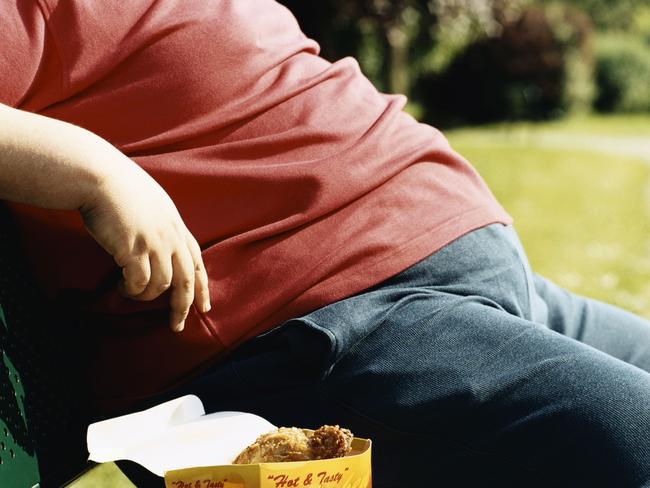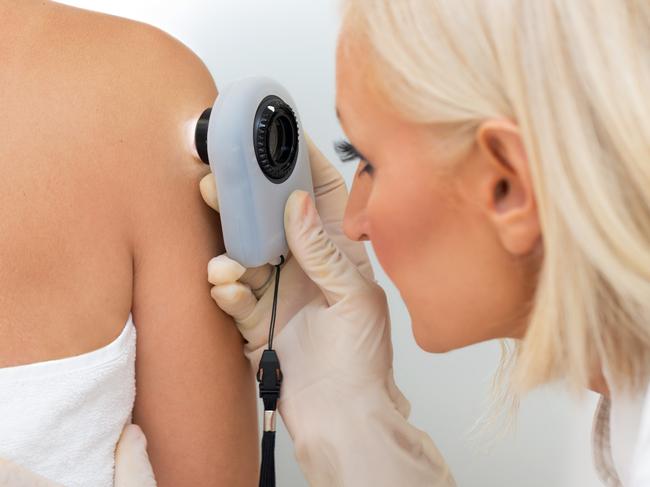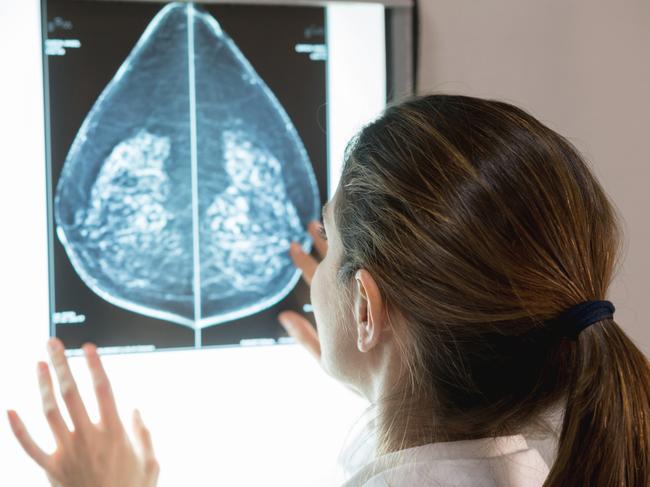Gut bacteria, diet and weight the smoking gun behind rise in cancers in young Aussies
People born in the early 2000s have a six-to-seven-fold increased likelihood of getting bowel cancer — and now researchers have uncovered the gut reason behind the shock trend.
Victoria
Don't miss out on the headlines from Victoria. Followed categories will be added to My News.
More Victorians than ever before were diagnosed with cancer in 2023. The latest report by the Victorian Cancer Registry (VCR) out today also reveals a worrying spike in cancer in young people, in particular in women.
VCR director Professor Sue Evans says the data shows Victoria has likely recovered some of the missed cancer diagnoses from during the Covid pandemic.
“The good news is that there is less melanoma in young Victorians. That’s a terrific example of public health and raising awareness,” she said.

“The most sobering was the bowel cancer statistic that we’re seeing, particularly in young people.
“Every 35 years we’re doubling the number of people living or diagnosed with cancer in Victoria, it’s just the fact that there’s more of us and we are getting older.”
The VCR’s Cancer in Victoria 2023 report will released by Cancer Council Victoria. It will reveal women aged 25-49 were around 70 per cent more likely to be diagnosed with cancer than men of the same age.
While almost half had breast cancer, thyroid and bowel cancers were also common in young women in this age group.
The report confirms early-onset bowel cancer has risen by 65 per cent in just two decades and is now the leading cause of cancer-related deaths in young Victorians, but melanoma has dramatically declined.
Researchers say the “smoking gun” for the increase in bowel cancer in young Australians may be found in the gut and connected to diet.
“People born in the early 2000s have a six-to-seven-fold increased likelihood of getting colorectal cancer (bowel cancer), which is huge,” Professor Daniel Buchanan said.
He heads the Colorectal Oncogenomics lab at Melbourne University and is working on understanding why bowel cancer is increasing in young Australians.

“We’ve become more sedentary in our work and home life. And there’s been big changes in our diet through increasing sugar and processed meat,” Prof Buchanan said.
He is studying the gut microbiome and investigating different bacteria for their role in bowel cancer development.
“We have found a smoking gun!” Prof Buchanan said.
“One species of gut bacteria we know generates a toxin called ‘colibactin’ and that toxin can bind within DNA and cause damage. We now have the tools to be able to determine which early-onset bowel cancers have been caused by colibactin-related DNA damage.”
He said in the short term, raise awareness of the signs and symptoms of early-onset bowel cancer and not ignore them.
The report found 38,715 Victorians, an average of 106 a day, were diagnosed with cancer last year. This was up 5.7 per cent on 2022, almost double the percentage increase on previous years.
“It’s higher than we would normally expect in a given year,” Prof Evans said.

The most common cancers in 2023 were prostate, breast, bowel, lung and melanoma, but one in 10 new diagnoses were early-onset, a cancer diagnosed in people at a younger-than-expected age.
While cancer survival rates have almost doubled over the last 30 years, 33 Victorians still die from cancer every day and Aboriginal Victorians are almost three times more likely to succumb to cancer.
Regional Victorians were more likely to be diagnosed with cancer than city dwellers, with head and neck, lung cancer and melanoma the most common.
Cancer Council Victoria chief executive Todd Harper said the trends highlighted the need to do more to prevent cancers occurring and to detect cancers earlier.
“The rise in early-onset cancers should prompt us all to speak to our friends and loved ones about protecting their health against cancer to ensure greater prevention and early detection occurs across all age groups,” Mr Harper said.
“With one in two Victorians expected to be diagnosed with cancer by the age of 85, this disease will touch nearly all of us.
“Healthy diets, physical activity, reducing alcohol consumption, quitting smoking, being SunSmart and participating in regular screenings and understanding your family’s health history are crucial steps in reducing the impact.”

BY THE NUMBERS
38,715 diagnosed with cancer
106 new cases a day
One in 10 were early-onset cancers in people aged 25-49 years
Young women were 70 per cent more likely to develop an early-onset cancer than young men
Melanoma in regional Victoria is 54 per cent more likely than in major cities
MOST COMMON CANCERS
PROSTATE: The most common cancer in Victoria
BREAST: Accounted for 13 per cent of all new cancer cases in 2023
BOWEL: Found in more men than women, rates are anticipated to increase
LUNG: Common in men (1800) and women (1649)
MELANOMA: 3182 Victorians diagnosed with rates likely to decline over the next 15 years




